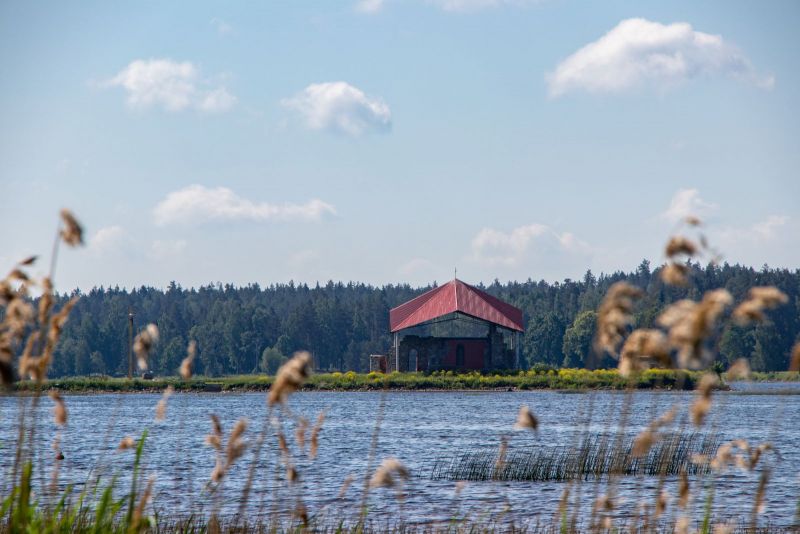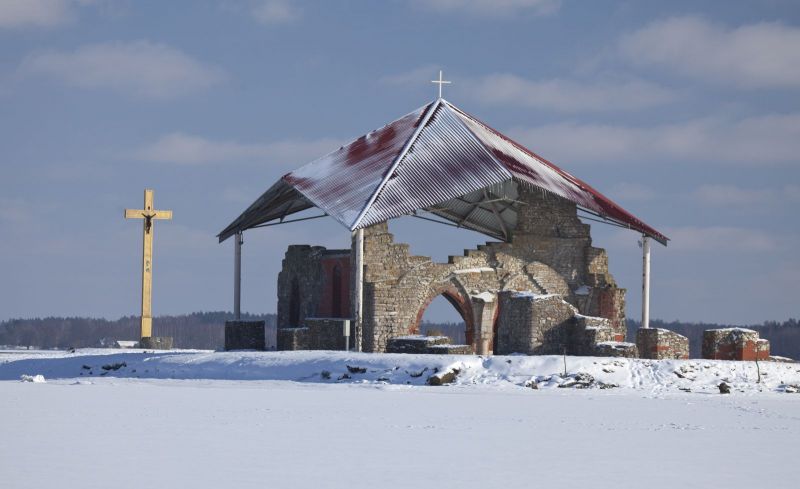2. Ikšķile church ruins on the St. Meinhard island
| Address | Ikskile, Ogre Municipality |
| Phone | +371 65022458 |
| Description | Ikšķile is a town and the centre of the region in south-west Vidzeme near Daugava, which can be considered one of the most ancient towns in the territory of Latvia. Ikšķile became the centre of the Diocese of Livonia in 1185. Ikšķile is one of the most ancient populated regions of Latvia. This is testified to by hillforts and ancient burial sites in the current rural territory of Ikšķile. In the 9th – 12th century, there already was a village of Livs by Daugava waterway. The name Ikšķile is derived from Livonian words üks küla, which mean "one village". In 1185, stone-cutters of Gotland built a castle for the bishop of Livonia in Ikšķile with a chapel or church. Ikšķile church ruins are the most ancient ruins of a stone building in Latvia, located on a small island, the St. Meinhard island, in the manmade reservoir of Riga hydropower plant. Ikšķile church was built in 1185 under the government of bishop Meinhard, rebuilt in 1879 - 1881, ruined in 1916. After the filling of Riga hydropower plant reservoir in the 70s of the 20th century, it is encircled by the waters of the hydropower plant. Nowadays the ruins are conserved, a roof is constructed over them, the island is fortified. For conservation, in 2002, the ruins were covered with metal; however conservation was also performed before, in 1962 – 1963 and in 1970 – 1975. In 2005, the church was included in the European Cultural Heritage list as one of the tidiest monuments of the Latvian culture. The sanctuary of St. Meinhard, both due to its cultural and religious importance, is gradually becoming more famous in Latvia. On this island, several days of young people have been started carrying a lit candle throughout entire Latvia – from the first place with church ruins in Ikšķile to other Latvian towns and cities. Every year, on the first Sunday after August 15, Dormition of the Mother of God is celebrated on St. Meinhard island. Services are held on the island, as well as baptism and marriage ceremonies. There is a stone altar on the island (sculptor J.Karlovs) and a 10 metre high metal cross (sculptor E.Samovičs). Nowadays, to see the ruins, you can get to the island by boat or by ferry, but when the water level of Riga hydropower plant reservoir decreases, you can reach the church ruins by walking on the dry former road, both sides of which still have the stumps of the old tree alley preserved.
Listen to the audio guide’s story about this site:
The mobile app "Ogres novadnieks" is available on app stores:
|



%20(2).jpg)
.jpg)
.jpg)